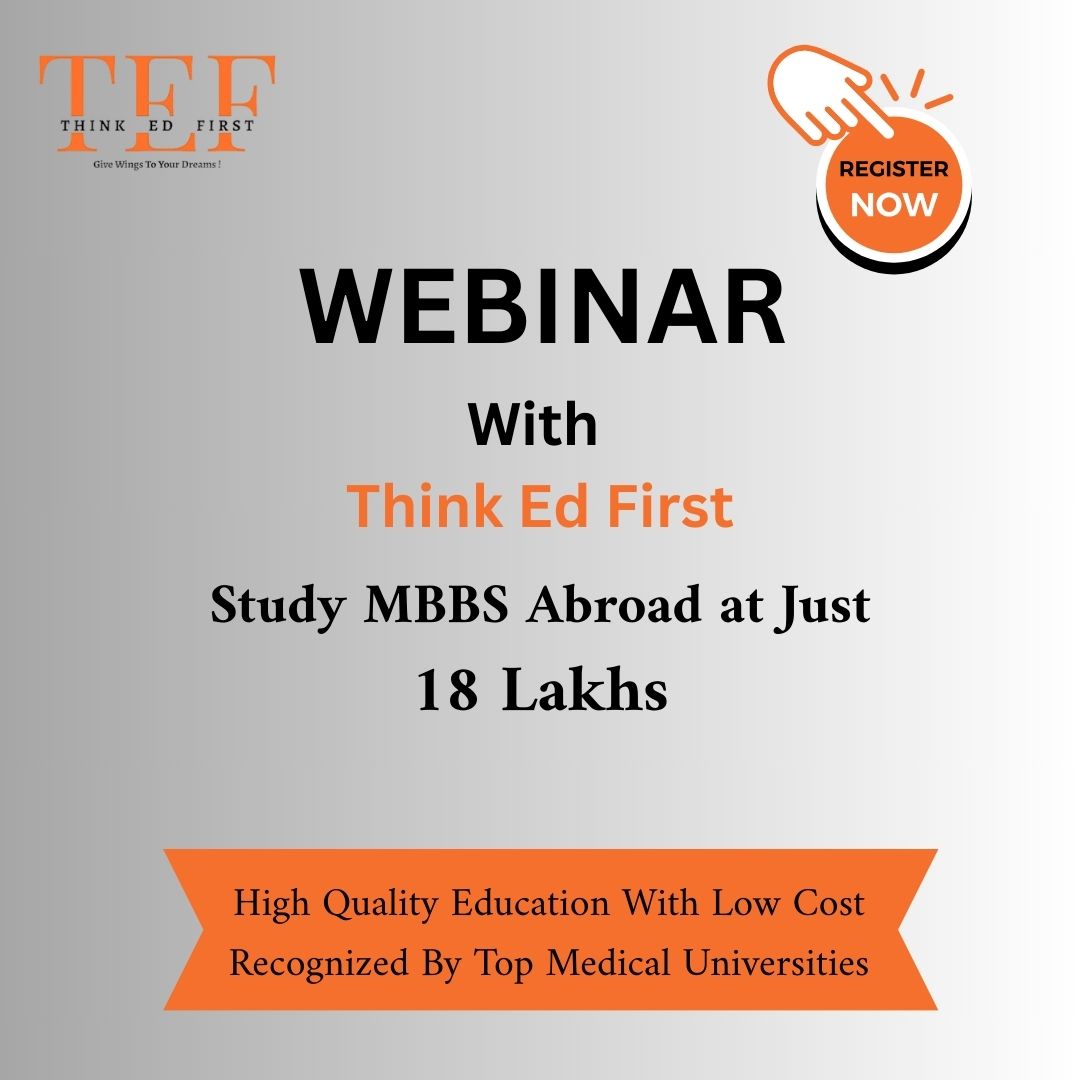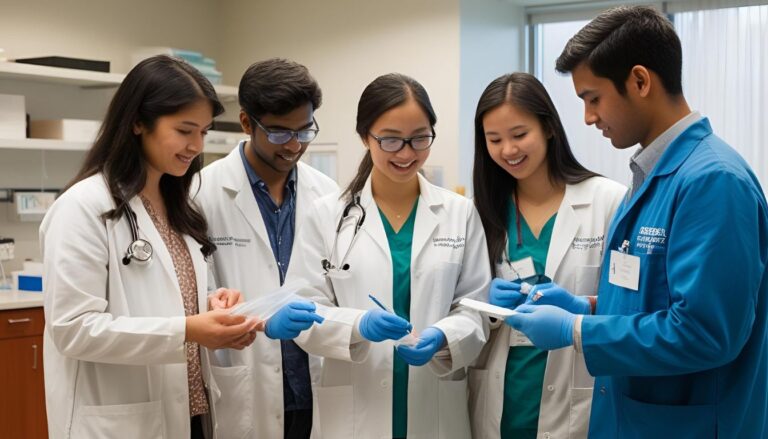Have you ever wondered why so many foreign medical graduates face challenges when returning to practice in India? The journey from earning a degree abroad to practicing medicine at home is filled with critical steps and regulatory changes. Understanding these can make all the difference.
Recent updates from the National Medical Commission (NMC) have reshaped the landscape for medical graduates. Since November 2021, new regulations have been in place, ensuring that foreign medical education aligns with Indian standards. This guide aims to clarify these changes and provide essential insights for those navigating this path.
One of the key aspects to consider is the transition from the FMGE to the NEXT exam by 2023. This shift is designed to streamline the assessment process, ensuring uniformity and efficiency. For those who have completed their MBBS abroad, staying informed about these developments is crucial.
Additionally, the BMDC registration process and the importance of an Eligibility Certificate cannot be overlooked. These steps are vital for ensuring that your qualifications are recognized and that you can practice medicine in India without any hurdles.
For more detailed information on NMC guidelines, you can refer to our comprehensive guide on NMC guidelines for MBBS abroad. This resource will help you understand the requirements and prepare effectively for the upcoming changes.
What Is the FMGE/NEXT Exam for Bangladesh MBBS Graduates?
Navigating the medical licensing process in India can be complex for those with international degrees. For foreign medical graduates, understanding the assessments required to practice in India is crucial. Two key evaluations stand out: the Foreign Medical Graduate Examination (FMGE) and the National Exit Test (NEXT).
Understanding the Foreign Medical Graduate Examination (FMGE)
The FMGE was introduced in 2002 as a mandatory licensing exam for foreign medical graduates. It ensures that those with international degrees meet the standards required to practice in India. Conducted by the National Board of Examinations (NBE), the FMGE consists of 300 multiple-choice questions, with a passing score of 150.
Transition to the National Exit Test (NEXT)
Starting in 2023, the NEXT exam will replace the FMGE and NEET-PG. This unified test serves three purposes: licensure, postgraduate admission, and final MBBS assessment. NEXT includes 540 scenario-based questions in Paper-I, reflecting a shift toward a more comprehensive evaluation.
| Aspect | FMGE | NEXT |
|---|---|---|
| Purpose | Licensing | Licensing, PG Admission, Final MBBS Assessment |
| Question Format | 300 MCQs | 540+ Scenario-Based Questions |
| Conducting Body | National Board of Examinations (NBE) | National Board of Examinations (NBE) |
| Applicability | Foreign Medical Graduates | Domestic and International Graduates |
The transition to NEXT marks a significant step toward standardizing medical education and assessment in India. For foreign medical graduates, staying informed about these changes is essential to ensure a smooth path to practicing in India.
Key Differences Between FMGE and NEXT
The shift from one licensing system to another brings significant changes for aspiring doctors. For those with international degrees, understanding these differences is crucial to navigating the path to practice in India. Let’s explore the key distinctions in structure, format, and their broader implications.
Exam Structure and Format Changes
The previous system relied on a single-day test with 300 multiple-choice questions. In contrast, the new system spans three days and includes scenario-based questions. This change reflects a move toward a more comprehensive evaluation of a candidate’s knowledge and skills.
Another notable difference is the scoring system. While the earlier test was pass/fail, the new one uses percentile-based ranking. This shift aims to provide a clearer assessment of a candidate’s performance relative to others.
Impact on Licensing and PG Admissions
The new system eliminates the need for a separate postgraduate entrance test. Scores from the updated assessment will now determine eligibility for both licensing and postgraduate seat allocation. This streamlined approach reduces redundancy and simplifies the process for candidates.
Additionally, the updated test includes a practical component post-internship. This step ensures that candidates demonstrate clinical decision-making skills, aligning with the demands of modern medical practice.
- Transition from pass/fail to percentile-based ranking.
- Introduction of practical assessments post-internship.
- Unified scoring for licensing and postgraduate admissions.
These changes aim to standardize medical assessments and ensure that candidates meet the evolving standards of the healthcare system.
Eligibility Criteria for FMGE/NEXT
Understanding the eligibility criteria is the first step toward a successful medical career in India. For candidates with international degrees, meeting these requirements ensures a smooth transition into the Indian healthcare system. Let’s explore the key prerequisites for those aspiring to practice medicine in India.
Requirements for Bangladesh MBBS Graduates
Candidates must hold a primary medical qualification from a recognized institution. The course duration should be at least 54 months, and the medium of instruction must be English. Additionally, the degree must be completed within 10 years, with exceptions for COVID-19-related delays.
Documentation plays a vital role in the process. Candidates need to submit their degree certificate, proof of internship completion, and a valid BMDC license. These documents must be authenticated by the appropriate authorities to ensure their validity.
NEET-UG Mandate and Exemptions
Since 2019, clearing the NEET-UG exam has been mandatory for candidates pursuing undergraduate medical education abroad. However, exemptions apply to those who enrolled before this date. Overseas citizens of India (OCI cardholders) are also subject to these rules, ensuring uniformity in the assessment process.
It’s important to note that degrees from unrecognized private colleges in Bangladesh are not accepted. Candidates must verify their institution’s recognition status through the BM&DC’s verification process to avoid complications.
| Requirement | Details |
|---|---|
| Primary Medical Qualification | Recognized MBBS degree |
| Course Duration | Minimum 54 months |
| Medium of Instruction | English |
| NEET-UG | Mandatory for post-2019 candidates |
| Documentation | Degree, internship proof, BMDC license |
NMC Guidelines for Foreign Medical Graduates
The National Medical Commission (NMC) has set clear guidelines for foreign medical graduates to ensure their qualifications meet Indian standards. These rules focus on course duration, internships, and subject requirements, ensuring a smooth transition into the Indian healthcare system.
Course Duration and Internship Rules
According to the NMC, the primary medical course must last at least 54 months, followed by a 12-month internship. This structure ensures that students gain comprehensive theoretical and practical knowledge. In contrast, some countries, like Bangladesh, follow a 60+12 model, which differs slightly from the NMC’s requirements.
Key points to note:
- Online classes are limited to 30% of the course, with the rest requiring offline practical training.
- Clinical rotations must cover all mandatory subjects, including General Medicine, Surgery, and Obstetrics.
- Incomplete clinical rotations can lead to disqualification from the licensing process.
Medium of Instruction and Subject Requirements
The NMC mandates that the medium of instruction for the course must be English. This ensures that graduates can communicate effectively in India’s healthcare system. Additionally, the curriculum must include specific subjects like Community Medicine, Psychiatry, and Emergency Services, aligning with Indian MBBS standards.
Important considerations:
- English proficiency documentation is required during the application process.
- Credit transfers between institutions are prohibited, ensuring uniformity in education.
- The curriculum must match Schedule-I subjects outlined by the NMC.
By adhering to these guidelines, foreign medical graduates can ensure their qualifications are recognized and meet the standards set by the National Medical Commission.
How MBBS from Bangladesh Meets NMC Standards
Medical education in Bangladesh has gained recognition for its alignment with Indian standards. The National Medical Commission (NMC) has approved 38 institutions in Bangladesh, ensuring their MBBS degrees are valid for practicing in India. This recognition is backed by the Bangladesh Medical and Dental Council (BMDC), which plays a role similar to state medical councils in India.
Validity of Bangladesh Medical Degrees in India
In October 2022, the BMDC confirmed the validity of MBBS degrees from Bangladesh for Indian students. This confirmation ensures that graduates can practice in India after clearing the required assessments. The curriculum in Bangladesh, particularly at institutions like Dhaka University, aligns closely with Indian standards, including AIIMS benchmarks.
Key points to note:
- The MBBS program in Bangladesh includes 54 months of coursework and a 12-month internship, matching NMC requirements.
- Clinical training at hospitals like Dhaka Medical College provides hands-on experience equivalent to Indian institutions.
- Degrees from NMC-approved colleges are fully recognized, enabling graduates to practice in India without additional hurdles.
BMDC Registration and Its Importance
The BMDC serves as the primary regulatory body for medical education in Bangladesh. Its role is akin to the state medical council in India, ensuring that institutions meet global standards. Graduates must register with the BMDC to validate their degrees, a step crucial for practicing in India.
Here’s why BMDC registration matters:
- It confirms the authenticity of the MBBS degree, making it eligible for NMC recognition.
- It ensures that the curriculum and clinical training meet international benchmarks.
- It simplifies the process of obtaining an Eligibility Certificate from the NMC, a prerequisite for practicing in India.
By understanding these steps, aspiring doctors can ensure their qualifications align with NMC standards, paving the way for a successful medical career in India.
Preparing for the NEXT Exam
Effective preparation is the cornerstone of success in any medical assessment. For aspiring doctors, understanding the syllabus and question patterns is crucial. The NEXT test covers all 19 MBBS subjects, with a strong emphasis on problem-solving and clinical application.
Syllabus and Question Patterns
The NEXT syllabus includes core subjects like Medicine, Surgery, Obstetrics, and Community Medicine. Approximately 60% of the questions are problem-solving, designed to evaluate clinical decision-making skills. This format ensures that candidates are well-prepared for real-world medical scenarios.
Here’s a breakdown of the weightage distribution:
| Subject | Weightage |
|---|---|
| Surgery | 20% |
| Medicine | 15% |
| Obstetrics & Gynecology | 10% |
| Community Medicine | 10% |
To excel, candidates should focus on clinical scenarios and image-based questions. These are integral to Paper-II, which assesses practical skills.
Recommended Study Resources
An integrated study approach combining textbooks and question banks is highly effective. Resources like Marrow, Prepladder, and DAMS offer comprehensive materials tailored for the NEXT test. These platforms provide video lectures, mock tests, and practice questions to enhance preparation.
Key tips for success:
- Map the NEXT syllabus to your final-year MBBS topics for better alignment.
- Use NMC’s official competency matrix documents to guide your study plan.
- Regularly attempt mock tests to improve time management and accuracy.
- Avoid relying on outdated materials to ensure your preparation aligns with current standards.
For additional insights, refer to our guide on how to pass the FMGE in the first. This resource offers valuable strategies for tackling medical assessments effectively.
By following these steps, you can approach the NEXT test with confidence and clarity, ensuring a smooth path to your medical career.
Internship Requirements for FMGE/NEXT Qualifiers
Completing an internship is a critical step for medical professionals aiming to practice in India. It provides hands-on experience and ensures readiness for real-world medical challenges. For those with international degrees, understanding the rules and processes is essential.
Foreign vs. Indian Internship Rules
Internship structures vary between countries. In Bangladesh, medical students complete a 12-month clerkship, which differs from India’s rotatory internship model. The Indian system emphasizes diverse clinical exposure across specialties like Medicine, Surgery, and Obstetrics.
For foreign graduates, the National Medical Commission (NMC) mandates a 12-month internship in India after completing their foreign training. This ensures alignment with Indian medical standards. Additionally, COVID-19-affected students may need to complete a two-year internship, with stipends applicable during the second year.
Application Process for State Medical Councils
Securing an internship in India involves applying to state medical councils. The process requires several documents, including degree certificates, passports, and police clearance. Applications must be attested by relevant authorities to ensure validity.
Here’s a step-by-step guide:
- Submit your degree and internship completion proof.
- Attach a valid passport and police clearance certificate.
- Complete the NMC’s centralized internship portal application.
- Await approval, which typically takes 90 days.
State-wise variations in seat allocation exist, so researching preferred hospitals in advance is advisable. Common rejection reasons include incomplete BMDC logs, so double-check all documentation before submission.
By following these steps, medical professionals can navigate the internship process smoothly, paving the way for provisional permanent registration with the Medical Council of India.
Common Challenges for Bangladesh MBBS Graduates
For many students pursuing a medical career abroad, returning to practice in India presents unique hurdles. Adapting to the new assessment format and overcoming low pass rates are among the most significant challenges. Let’s explore these issues and practical solutions to help students succeed.
Adapting to the New Test Format
The transition to the updated assessment requires a shift in preparation strategies. Unlike previous formats, the new test emphasizes clinical case analysis and problem-solving skills. This change demands a deeper understanding of real-world medical scenarios.
Here are some strategies to adapt effectively:
- Enroll in dedicated coaching programs designed for the updated test format.
- Practice with simulated mock tests to familiarize yourself with scenario-based questions.
- Focus on Indian medical jurisprudence, a critical component of the test.
Overcoming Low Pass Rates
Historically, foreign medical graduates have faced lower pass rates compared to domestic students. For instance, the average pass rate for students from certain countries is around 5%, while domestic students achieve a 35% success rate. This gap highlights the need for targeted preparation.
Key steps to improve performance include:
- Analyze performance trends to identify weak areas and focus on improvement.
- Seek mentorship from alumni networks or top scorers for personalized guidance.
- Use resources like NMC’s competency matrix to align your preparation with test standards.
By addressing these challenges and implementing these strategies, students can enhance their readiness and increase their chances of success in the updated assessment.
Conclusion
Pursuing a medical career abroad requires careful planning and adherence to regulatory standards. For those considering MBBS abroad, Bangladesh stands out as an NMC-compliant choice, offering high-quality education and a curriculum aligned with Indian standards. Key steps like clearing NEET-UG, completing BMDC registration, and systematic preparation are essential for success.
We encourage aspiring doctors to stay informed and focused. For personalized guidance, reach out to Smile Education or attend upcoming NMC webinars on FMGL updates. With a projected 15% annual increase in graduates, the future looks promising for those committed to their medical education journey.
For more insights, explore our guide on important points to consider for studying MBBS. This resource will help you navigate the process with confidence and clarity.





